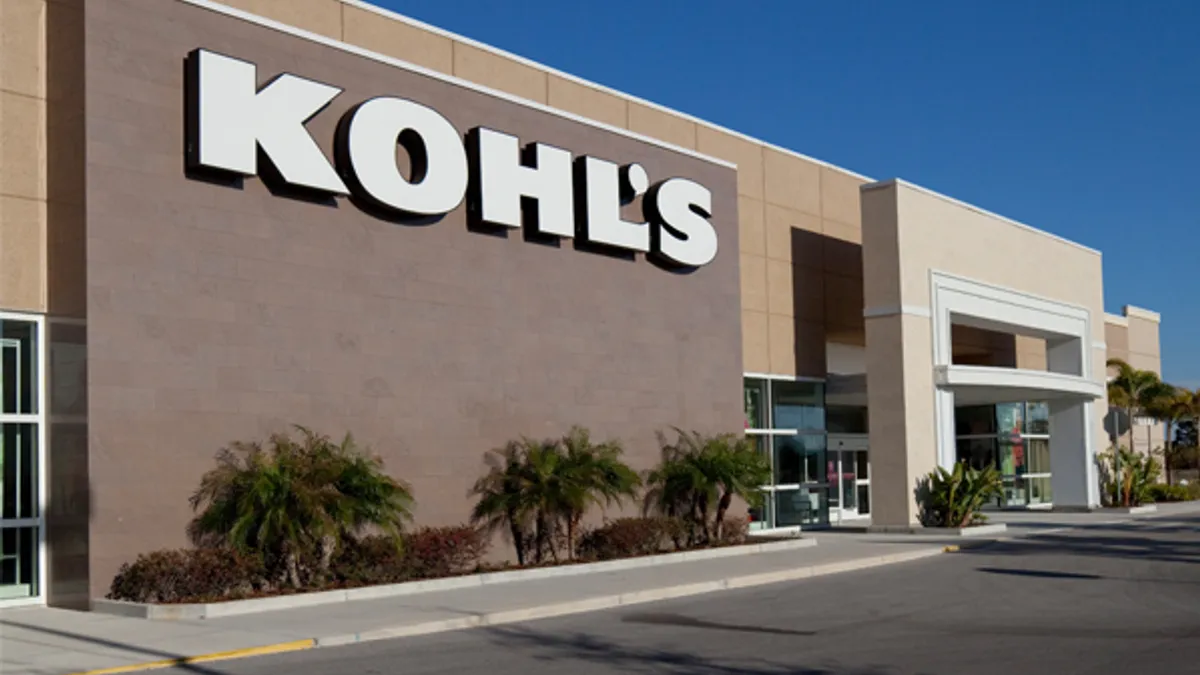Dive Brief:
-
Gap Inc. on Monday extended its store closures in North America and Europe past their previously announced April 1 reopening and furloughed most store workers in the U.S. and Canada, "pausing pay but continuing to offer applicable benefits until stores are able to reopen." Gap also reduced its corporate headcount globally, and its executives and board are taking a temporary pay cut, according to a press release. Furloughed workers number more than 80,000, according to a company spokesperson, who declined to share how many corporate employees are affected.
-
Kohl's is similarly extending store closures "until further notice" and furloughing all store workers and some corporate workers affiliated with store operations, providing benefits but not pay past the previously announced two weeks. That affects some 85,000 employees, the company told Retail Dive.
-
Kohl's took other financial measures, including cutting some $500 million in capital expenditures; reducing marketing, technology and operations while stores are closed; suspending share repurchases and evaluating dividends; and fully drawing down its $1 billion revolving credit facility.
Dive Insight:
The livelihoods of retail workers are under siege as the industry attempts to minimize the financial fallout from the COVID-19 pandemic. With the 125,000 or so announced by Macy's on Monday, nearly 300,000 were furloughed on that day alone. Designer Brands, Build-A-Bear and others have also announced furloughs of the vast majority of their employees in recent days.
It's a hardship that comes to a workforce already confronting relatively low pay. These employees do have some options. In its release, Kohl's said that "those impacted may benefit from the recently passed coronavirus stimulus legislation." And Gap Inc. provided an employee resource page with information on retailers that are still hiring, with direct links to apply to the likes of Walmart, Target, CVS and Amazon.
But labor advocates say retailers must do more. On Monday, the United Food and Commercial Workers (UFCW) International Union, representing some 1.3 million workers including retail, threw its support to Amazon warehouse workers, Instacart workers and Whole Foods workers walking off the job this week to protest what they call too-low pay and weak protections amid the disease outbreak.
And in a statement emailed to Retail Dive on Monday, Stuart Appelbaum, president of the Retail, Wholesale and Department Store Union (RWDSU), said that Macy's hasn't gone far enough to support its workers, including those affiliated with the union, who are covered under a collective bargaining agreement.
"Two weeks ago we negotiated historic provisions for workers that expire on April 1st. Critically it included plans to negotiate future terms, which we are still doing," Appelbaum said. "Macy's needs to do much more for its employees than what they have announced so far — and we are pushing them to do that. They will be judged in the future by how they treat their employees now."
Labor is among the top expenses in retail, and right now that's not being offset by sales from stores — hence the drawdowns from credit revolvers on the part of retailers of varying financial strengths, including Macy's, Nordstrom, Kohl's and others.
"The industry needs access to capital. We're in an environment where cash is king," Jane Hali & Associates analysts wrote in a report emailed to Retail Dive. In addition to drawing down on their existing capital facilities, retailers both strong and struggling are turning to banks to expand those facilities, and stronger ones to private equity and alternative asset managers for investments, they also noted.














